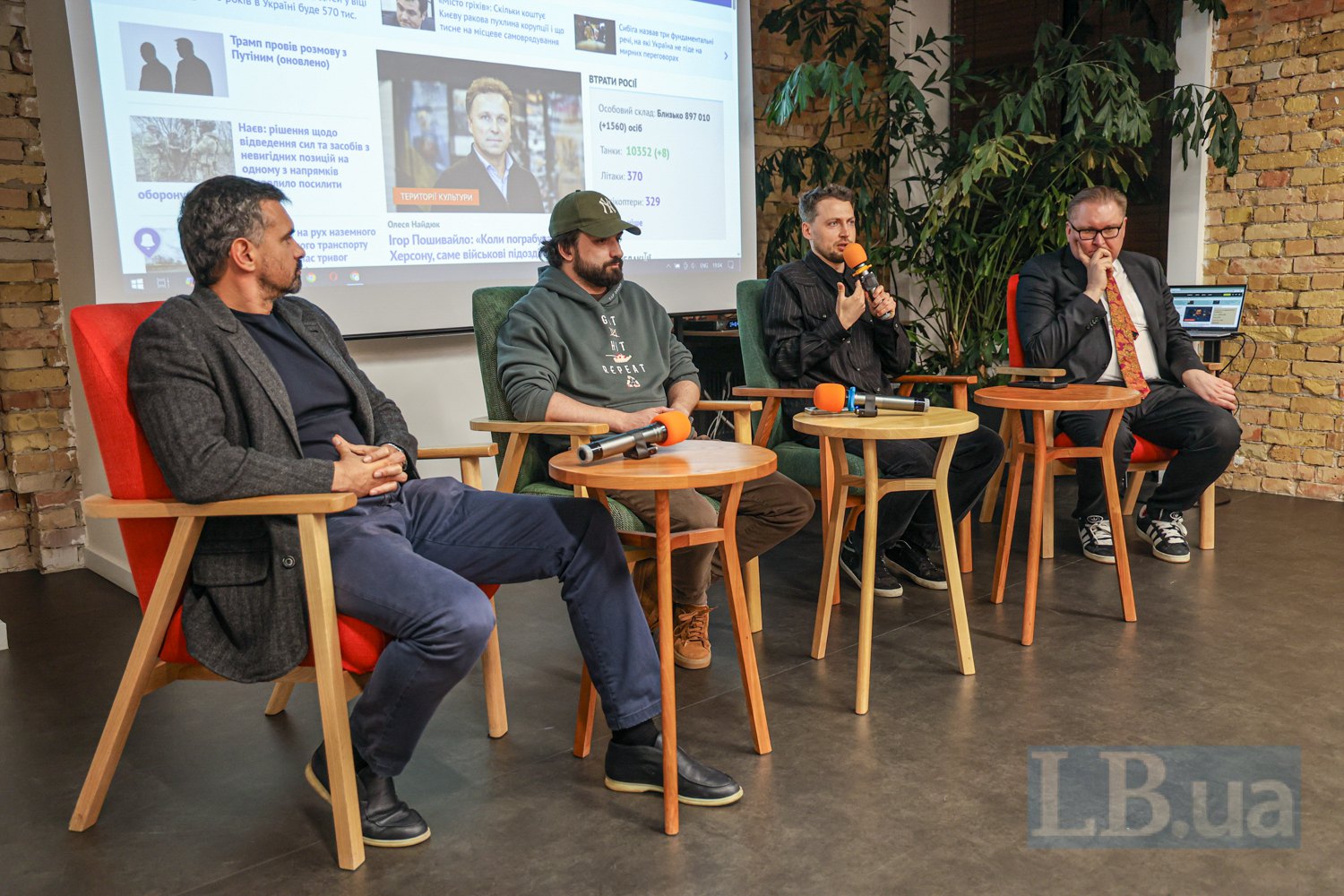
Achievements and dim prospects of Ukrainian Miltech
Since the beginning of the full-scale invasion, the government has taken a number of important deregulatory steps that have allowed small players to enter the military and defence technology industry, which was traditionally closed to the private sector. Thanks to simplified taxation, a profit margin of 25%, concessional lending, duty exemptions for imported components, and now long-term government procurement contracts, these small players have become powerful companies.
‘In 2024, Ukraine almost doubled its drone production plan: instead of the 1 million drones announced by President Volodymyr Zelenskyy, 1.8 million were produced. And this year - in the first quarter alone - at least 500,000 (or even all 800,000) have been produced,’ says Oleksandr Yakovenko, founder of TAF Drones, a top-five company that produces fpv drones, reconnaissance drones, and electronic warfare systems.
He is confident that manufacturers and the government as a customer will be able to meet the basic needs of the army with 4.5 million fpv drones this year. This is despite the fact that all of them, even in the hot phase of the war, are loaded at only half of their possible capacity.
This creates an obvious problem: after the end of active hostilities, manufacturers will simply not have enough orders, the state will not need the same number of drones, and exports are currently banned.
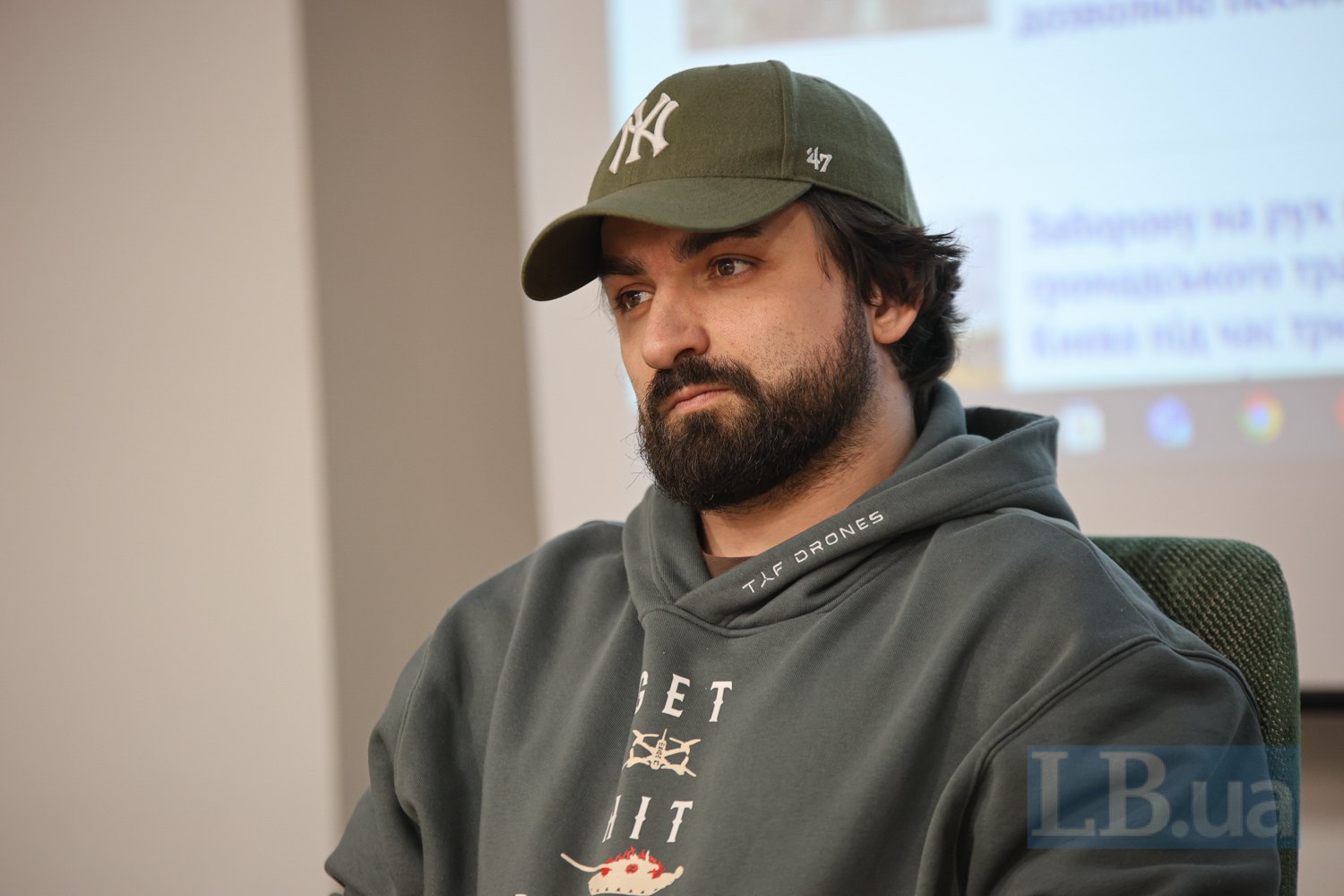
It is the permission to export high-tech products and weapons that can solve a number of problems, including the future of Ukrainian Miltech, says Oleksandr Yakovenko. And this is one of the urgent steps that manufacturers expect from the state.
‘We understand why the government bans the export of products abroad. It makes political sense - it will be strange if we, a country at war, export products. But it has a negative impact on the economy and industry development. Because when the war or the active phase is over, its further fate will be in question,' says Oleksandr.
At the same time, he adds, Russia is actively promoting its products to the world and had one of the best stands at IDEX in Abu Dhabi.
‘We, Ukraine as a state, were also represented. ‘Ukroboronprom and a few private manufacturers. This is not enough. No one will buy anything if we don't allow exports. What do other companies do? They register legal entities abroad. And we are already losing potential export revenue every day,’ the drone manufacturer said.
The second problem, he said, is the lack of a component base.
Ukrainian companies do not manufacture components for various types of drones - they simply assemble them from foreign components, mostly Chinese. On the one hand, we are heavily dependent on China, but on the other hand, this calls into question theoretical export opportunities, says Oleksandr Yakovenko.
‘We have a strong country in terms of the IT industry, and we write quite powerful software for our products. But this is not enough. To become international players, we need full liberalisation and the ability to produce and localise components in Ukraine. Without this, nothing will happen. No one will need us in the international market, because NATO countries do not need any of my products if they have Chinese components,’ Yakovenko said.
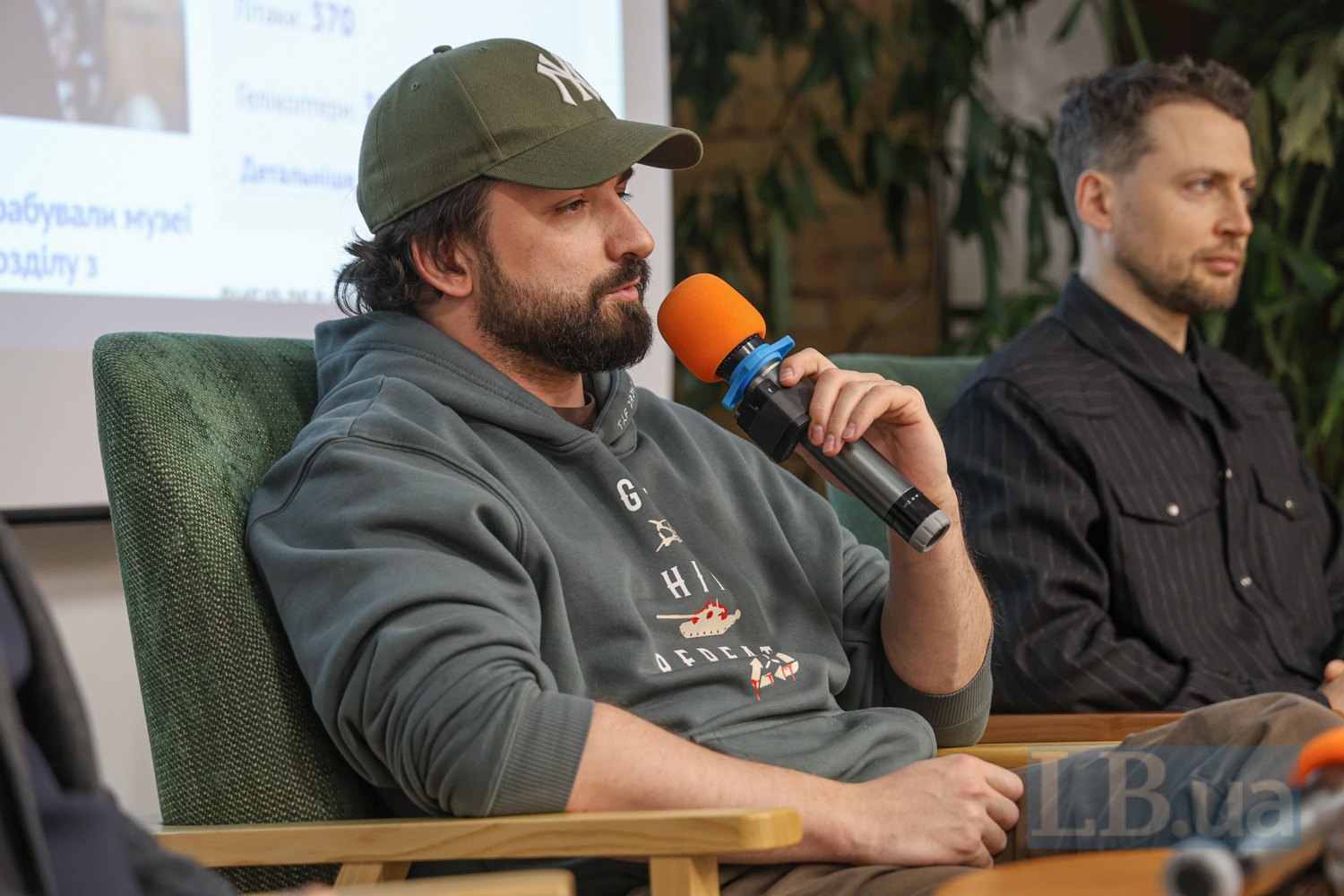
This requires further deregulation of the entire system by the state to remove additional burdens, he says.
‘If I bring carbon fibre from China to Ukraine to make frames, I will pay 10% duty and 20% VAT, which is 30% of the price.
If I order carbon fibre already cut in China in the form of a frame for an FPV drone - the government has made a preference, and I am very grateful for it - I will pay zero - neither duty nor VAT. Then the question is, why should I develop production in Ukraine if I can do it in China? In fact, we did just that. In fact, we have ordered SMT lines for printing PCB boards there and are currently printing these boards abroad,’ Yakovenko said.
And it's not even about frames - the same applies to communication systems, thermal imaging cameras, etc.
And finally, the third obvious problem is the lack of a legal framework for the Miltech industry.
‘No foreign investor will register and become an investor in a Miltech company with Ukrainian jurisdiction. Accordingly, even those companies that will receive exports, that will do some localisation, will pay taxes not in Ukraine,’ said Oleksandr Yakovenko.
Ihor Liski, Chairman of the Supervisory Board of EFI Group, added another factor that, in his opinion, is essential for the long-term development of Miltech: the lack of basic science.
‘Without basic science, we will not build an aircraft or a rocket, let alone space or satellites. We will remain at the same level, assembling drones from Chinese components, even with super-cool software,’ Liski said.
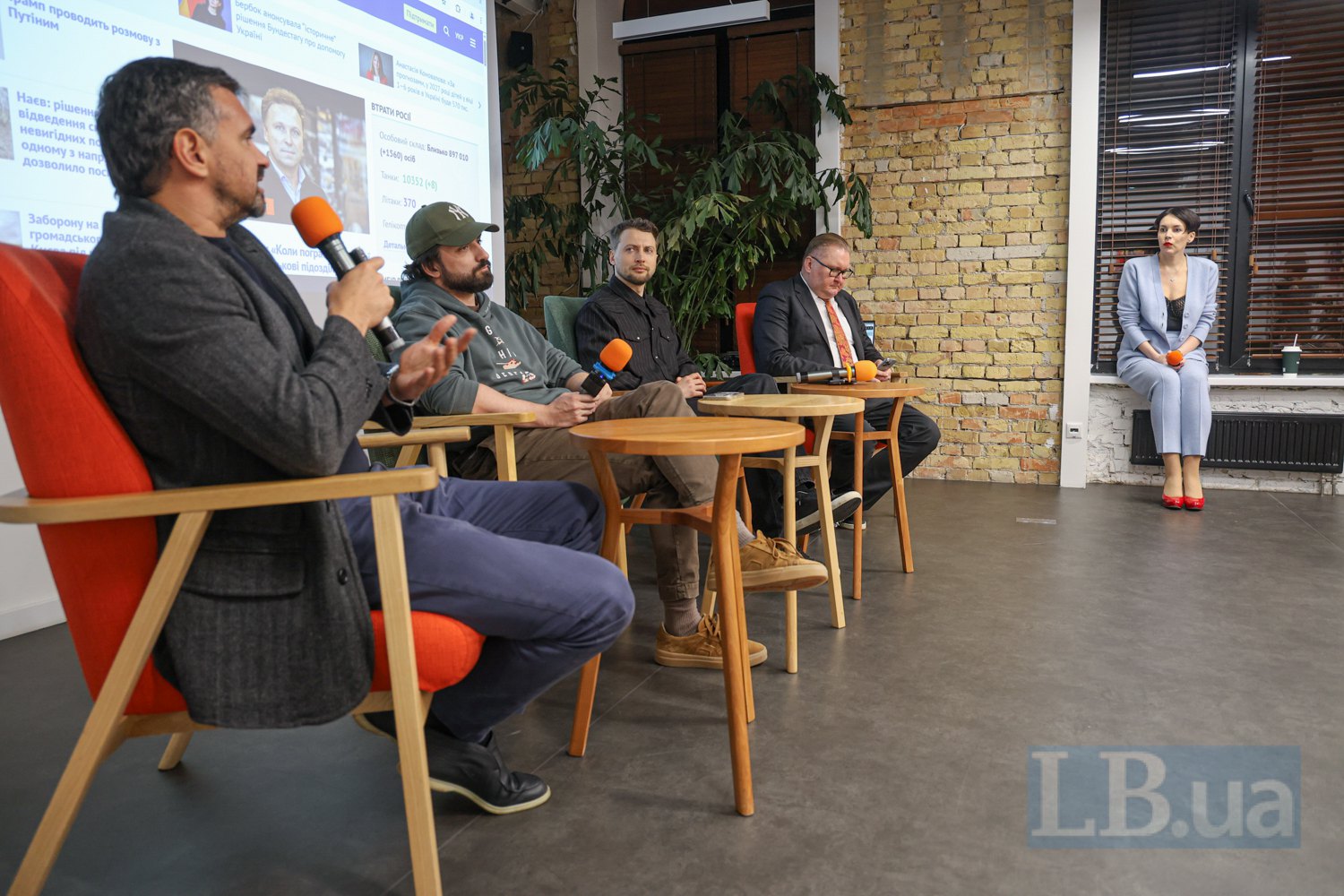
IT industry and low tax base as a development tool
According to Artem Borodatyuk, founder of Netpeak Group, one of the largest IT companies in Ukraine, the way to develop Ukraine to compete with the world is to liberalise it as much as possible, similar to the one implemented by President Javier Milei in Argentina (drastic cuts in public spending, improvement of the financial system, dismantling excessive government influence on the economy - Ed.)
The development of Ukraine's IT sector and the Miltech industry proves that low taxes and maximum non-interference from the government provide the best growth dynamics. Even despite the war, Borodatyuk emphasises.
‘Our Ukrainian IT needs to be divided. There are outsourcing and product companies. An outsourcing company is like selling grain,' Borodatyuk says, drawing an analogy with the agricultural sector, ’We sell grain to Germany, they bake bread there, sell it, and the added value remains in Germany, not in Ukraine. Grocery companies harvest grain and bake bread - the added value remains in Ukraine.’
And at a time when outsourcing companies in the Ukrainian market are closing down due to the risks of war (blackouts, missiles and, conditionally, mobilisation), food companies are actively developing, the entrepreneur emphasises. And all of them are residents of Diia.City, which means they enjoy a special tax regime for the IT sector.
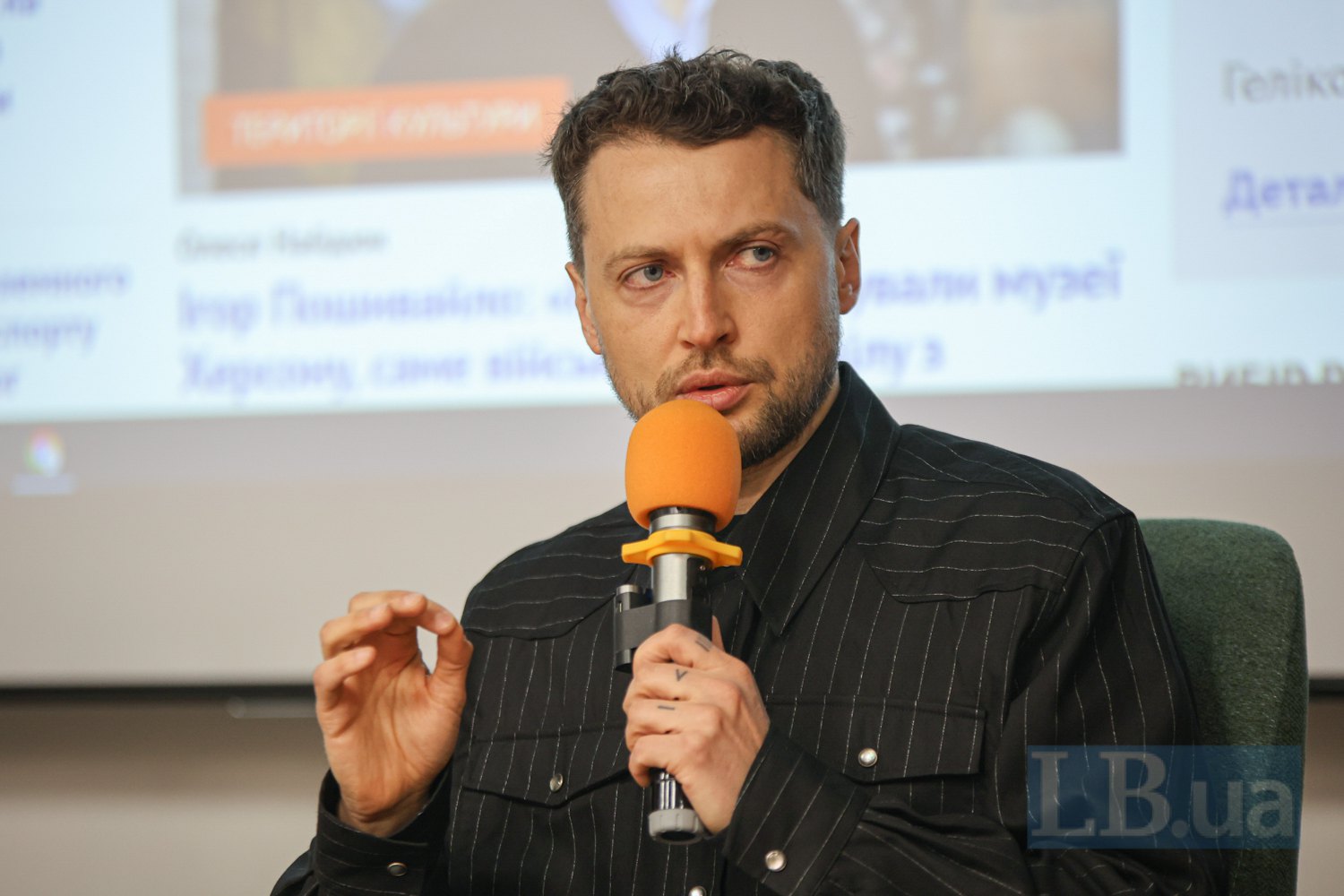
In support of his thesis that tax cuts will lead to increased revenues, the founder of Netpeak Group cited the example of Bulgaria, where they took this path back in 2008, leaving 10% of personal income tax and 10% of corporate tax. In one year, they collected less money, but in 10 years, they doubled the collection.
As an illustration of the negative impact of tax increases, the entrepreneur cited the case of his own company. After the military fee was increased to 5% (the total amount of taxes for Diia.City residents thus increased from 6.5% to 10%), some of the companies in the Netpeak Group had to abandon investment projects.
‘We have 25 companies of various sizes. We grew our revenue by 70% in dollars last year, and by 45% before that. And we reinvest a lot. Here, the tax rate is being raised from 6.5% to 10%, and five CEOs, i.e. five companies, have considered cancelling some of their investment projects (some have done so) because we are reinvesting all the money in ourselves - launching a new department or entering a market. Five companies are already running out of money. Here's a concrete example, when we were already paying more and more taxes for two years because we were developing. And now we won't be able to develop like that, and therefore pay more taxes,' said Artem Borodatyuk.
‘I think we need to join the European Union. But we should also understand that the European Union is already a museum where everything is beautiful and cool, but unfortunately, it is stagnating. We need the Arab-Asian model, where taxes are low, where you can buy an apartment for crypto, and where liberalisation is as high as possible. And Miltech is a great example, where I believe liberalisation and deregulation have become a key factor.
Low taxes are our way to development. Without it, we will lose the battle with the world. Arab and Asian countries have realised this. Europe is being very stupid, they are being very stupid in general, which is evident from the way they regulate artificial intelligence. We need to go there, but for geographical, civilisational, and democratic reasons, not economic ones,’ the entrepreneur believes.

What about ‘basic’ businesses?
According to businessman Ihor Liski, Ukraine needs to revive its industry, and this should be facilitated by an engineering base and powerful energy. The businessman emphasises that we have all the prerequisites for energy to be sustainable, efficient and, most importantly, affordable: we have nuclear power, hydropower, solar power, grids, gas storage facilities, and gas production.
‘We need a new industrialisation of the country. We have to become an industrial base for Europe. Then we can claim a different future,’ the businessman said.
And, of course, the agricultural sector is a growth point, which needs to be ‘processed with added value’.
‘We have to reach at least the level of Poland in agriculture. I'm not talking about the Netherlands or Italy, where they achieve tenfold exports of value-added products with a much smaller land base,’ the businessman continued.
According to Ihor Liski, every sector of the economy, including IT and Miltech, requires adequate steps from the state. And the first of them should be building trust.
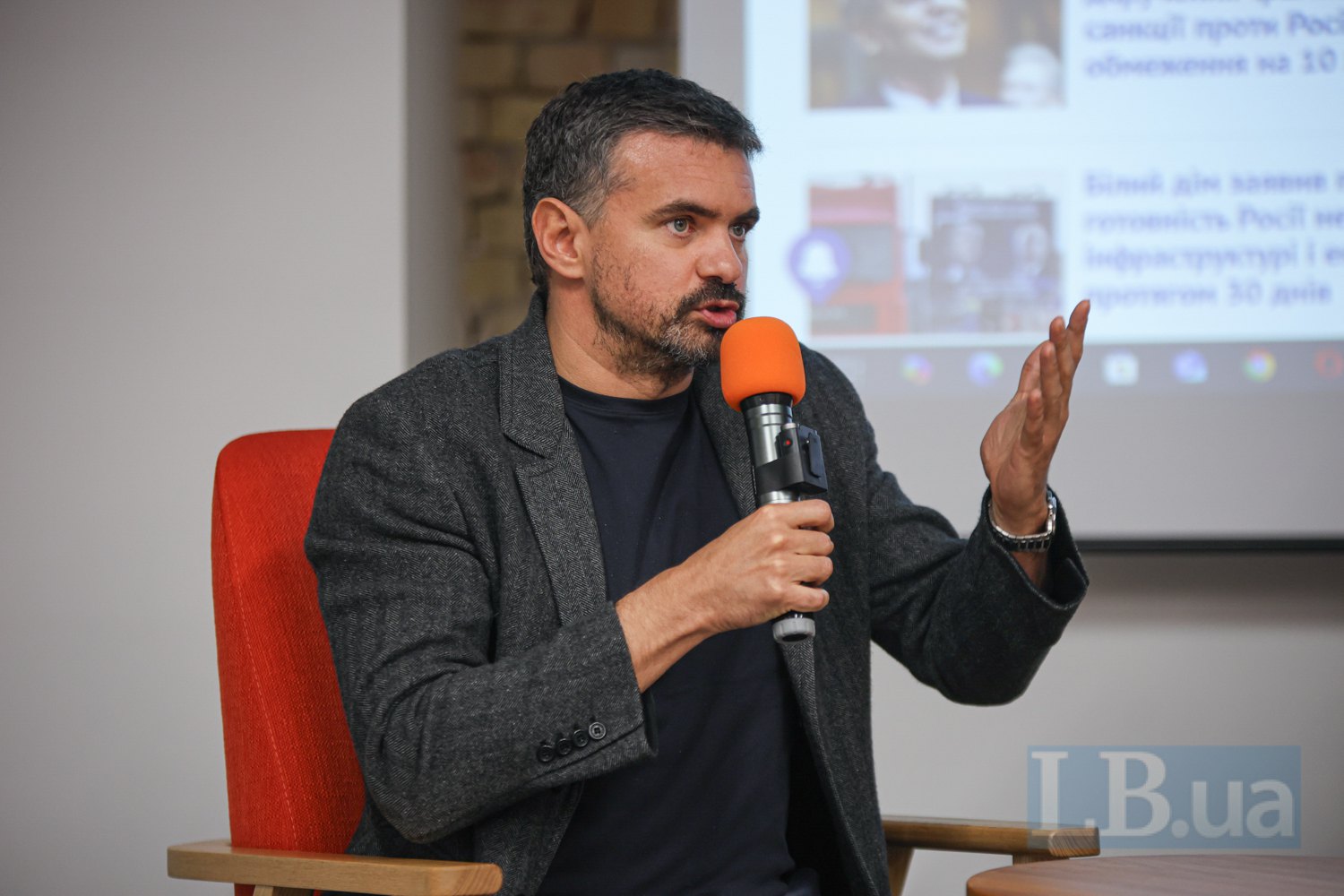 Ihor Liski
Ihor Liski

‘The government must understand that it depends on the economy, on business. And the war is not an excuse. If the government treats business like a goose, it will get the same treatment from business (here we refer to the famous phrase of the head of the Verkhovna Rada Tax Committee, Danylo Hetmantsev, that the art of collecting taxes is like plucking a goose so that it does not scream - Ed.', Ihor Liski says
But business is ‘screaming’
Trust, Ihor Liski emphasises once again, is where it all starts: respect for private property, transparent tax policy, etc. But what is happening in the country with business now?
‘In addition to Miltech, which I started in 2022, I have the main businesses - fuel imports, grain exports, and logistics,’ says Oleksandr Yakovenko, founder of TAF Drones, ’I can say frankly: the only business that perfectly and fully meets all the needs of the current legislation is Miltech at the moment.
Being in Diia.City, I pay a salary of 10% (5% plus 5% military duty). Not 43%, but 10%. Everything is as transparent as possible. I have a tax on withdrawn capital. I clearly understand that I can reinvest in R&D and not pay another 23% in taxes.’
‘In terms of interaction with the state,’ Yakovenko continues, ’I have had three searches in the last 2 years. Not for Miltech. The SBU, the BEB and the DIA (Department of Strategic Investigations of the National Police - Ed.). I collected a flash piano from all three. I don't understand why everyone is involved in the economy. But, of course, I do, because they like it very much and there is money in it.’
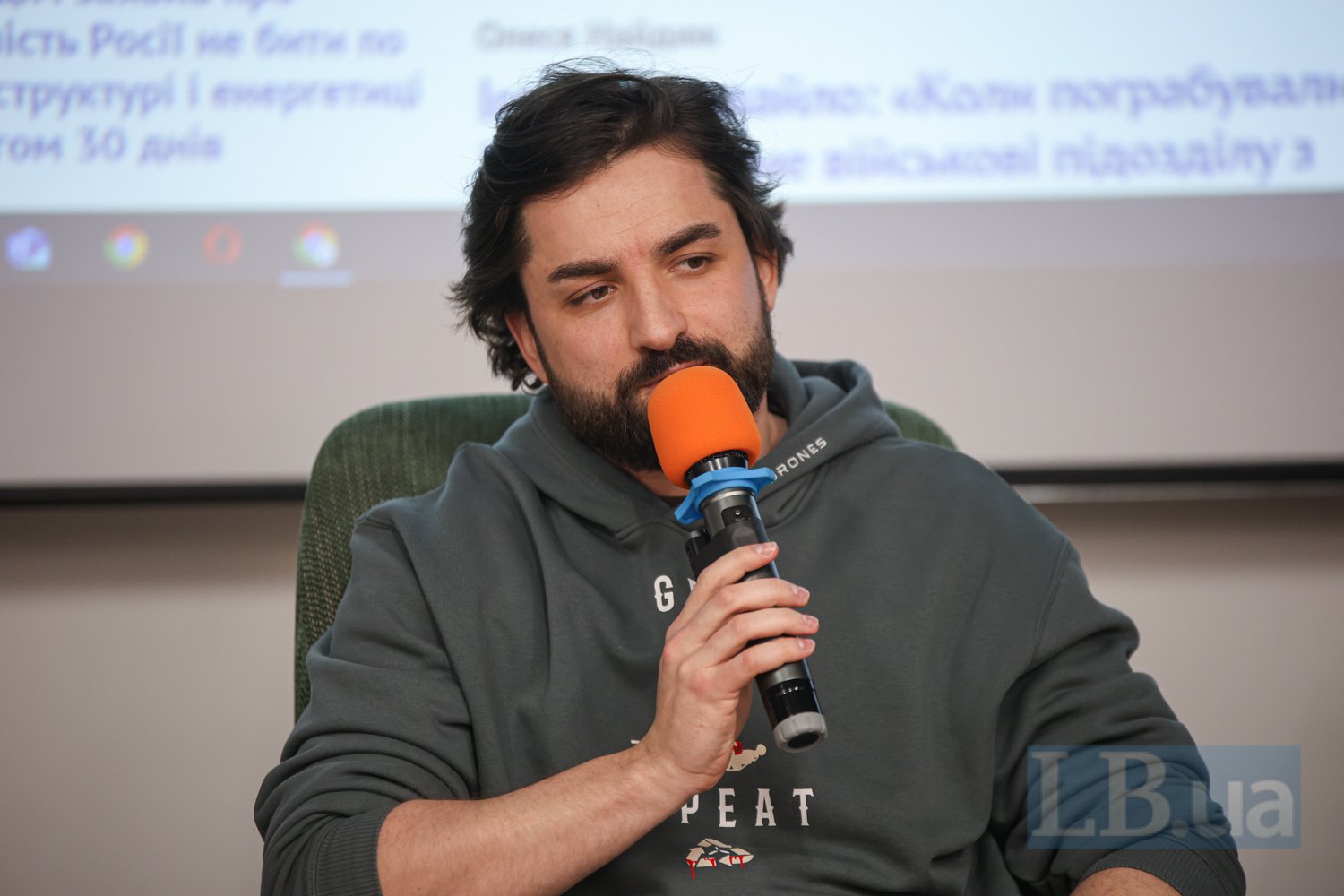
In the first case, the businessman notes, the Prosecutor General's Office dropped the charges in court. In the second case, everything is frozen, nothing is happening.
‘The last search took place on Wednesday (12 March - Ed.). For some reason, the police came to the Odesa office through the Pechersk court. No one understands why - we were not even involved in the case. They just mentioned our legal entity because it was somewhere in the chain. Of course, we will also win this case, but over time. Why over time? Because accounts are blocked, arrests are made, the director and owner are intimidated - they come to the house, they come to the office. And this is happening now. I have a feeling (someone here touched on the election issue) that it's like the last time. Everything is changing, we have a year left, we will go all out to the fullest,’ Yakovenko said.
He notes that there are positive changes, such as VAT refunds without bribes. However, if you calculate the legal, accounting and time costs, it is financially easier (no matter how principled your position is not to give bribes) to pay a ‘reward’ than to comply with all the rules.
The same applies to blocking tax invoices, the businessman adds.
‘This is just trash. We won a court case against the same company for the fourth time. And for the fifth time, they are again throwing the table off and blocking tax invoices. While there are still adequate officials in Kyiv, in Odesa, it's just trash in this regard,’ the businessman added.
The electronic administration systems do not have the desired effect, acknowledges Nina Yuzhanyna, a member of the European Solidarity MP.
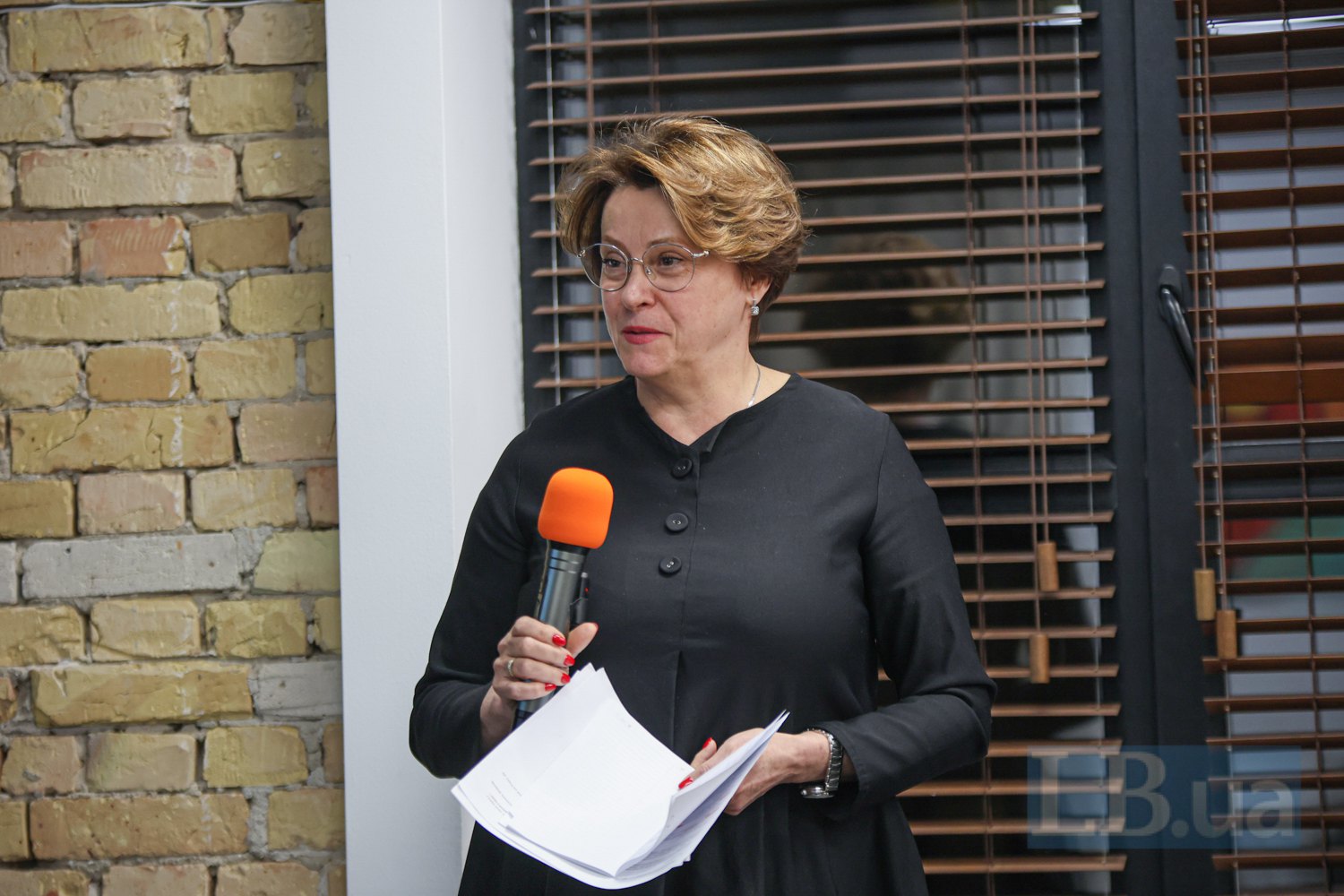
‘A lot of business remains in the shadows and is covered by certain structures, and we can't do anything about it. ...Everything can be negotiated, everything can be bypassed without official imports, sales, taxes. And you ‘solve’ everything,’ Yuzhanyna says.
At the same time, the way the government system works with white business does not contribute to the development of entrepreneurship in the country at all, emphasises Nataliya Mykolska, executive director of Diia.City.
‘It is better to be small because you are invisible. As soon as you become bigger, as it was with the IT company, you become visible, searches, criminal cases, and many other issues begin. Excuse me, when we are discussing IT companies at the Tax Committee, one of the MPs says: ‘So these IT people are sitting in short pants in coworking spaces, drinking matcha on coconut, paying taxes as individual entrepreneurs, getting foreign currency on their cards, now we're going to raise taxes on them, well, they'll drink five matcha on coconut a week instead of seven.
And you're sitting there with the six largest drone manufacturers, the largest technology companies, people who are working 24/7 in the morning because IT people work in several time zones, as a rule, because markets are everywhere. And this is the approach here. So with this approach, sorry, nothing will happen,’ Mykolska said.
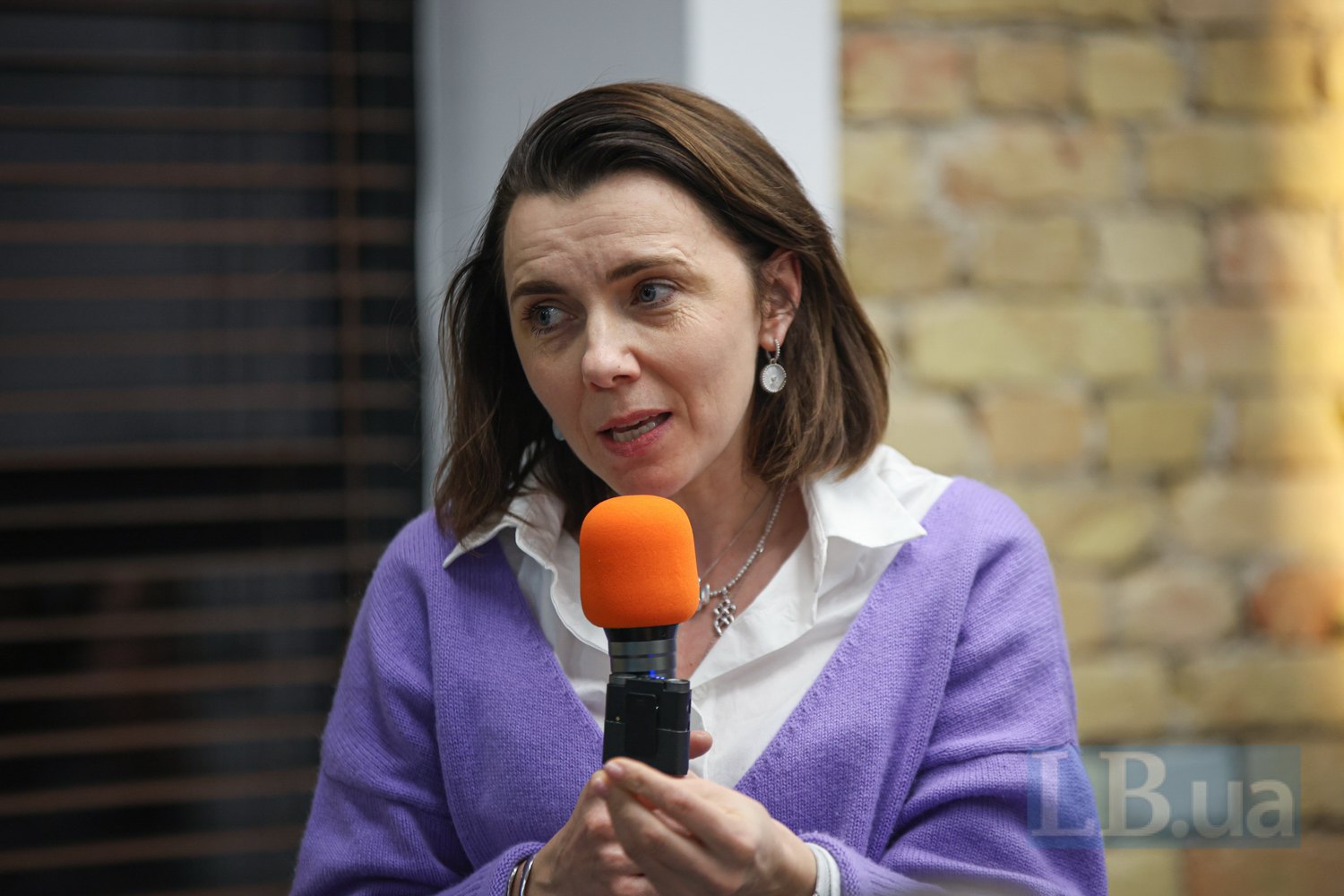
Business problems in Ukraine have not changed for many years. There are three main reasons for this, said Taras Kozak, president of Univer Investment Group. The first is the lack of the rule of law. The second is that there is no equal treatment of all business participants, there are friends, almost friends and strangers.
‘Who is in business and who has been visited by law enforcement, the SBU, and so on (all the top speakers raised their hands - Ed.)? Those who are in business know that until they come to you, you are nobody. If you are a businessman, they will come to you.
It always ends the same way. The criminal proceedings against me: the SBU came to my house because I didn't pay taxes on government bonds, where there are no taxes. A trillion, they say, is your business, but where are the taxes, where is our share, said the SBU officer at about the 20th hour of interrogation. It ended in nothing. The criminal proceedings have not been closed. We are still in the register of cases, but there is no point,’ Kozak said.
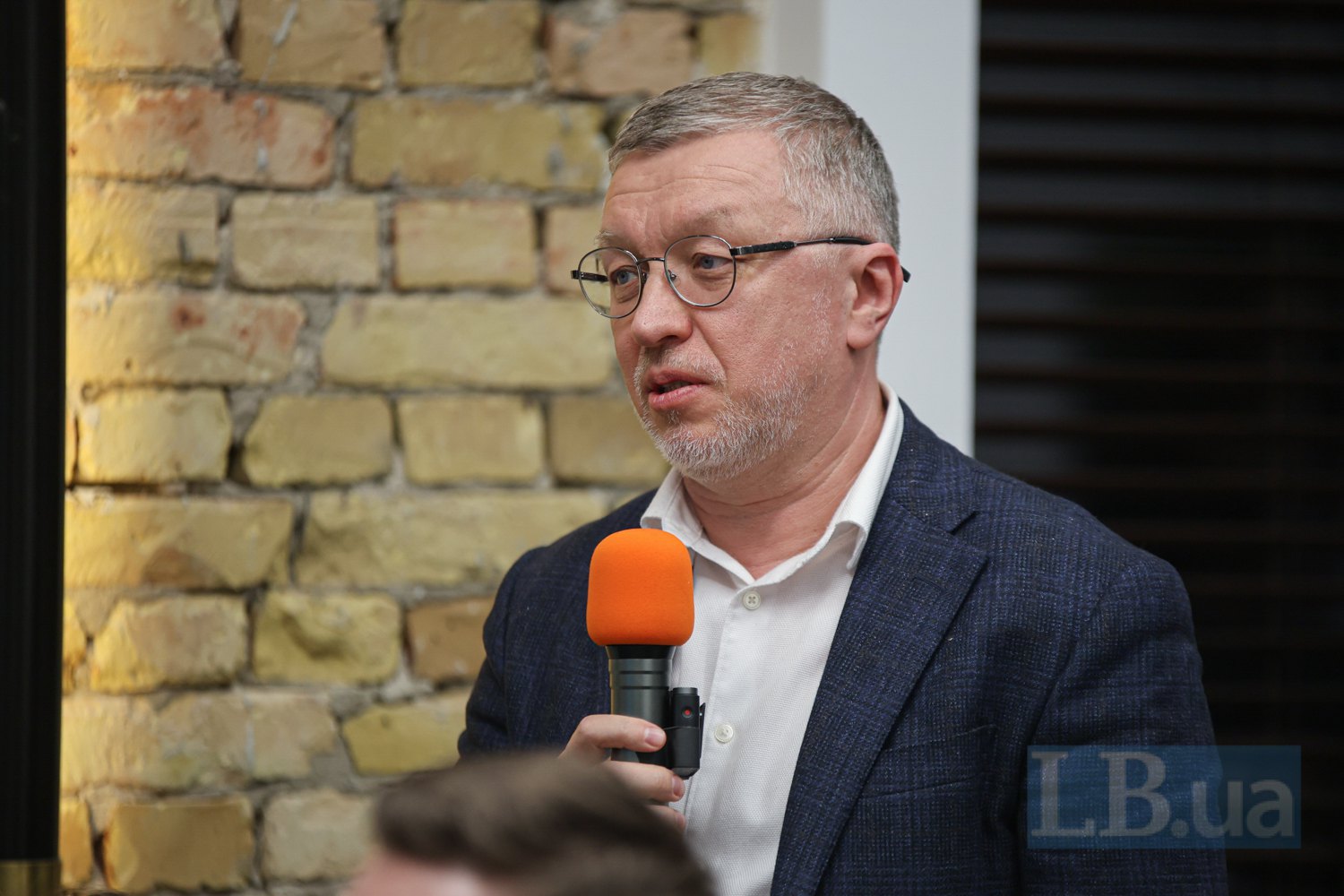
And the third reason is the lack of accountability of law enforcement agencies for damages caused to businesses. Not a single major, colonel, sergeant or anyone else has ever paid a fine; they are simply transferred to another job if they are too bad, the businessman concluded.
Business Ombudsman Roman Vashchuk said that after three years of his work in Ukraine, it is clear that ‘the fiscal-law enforcement nexus in Ukraine is very strong and is used to politically discipline an active society, which is why it is so difficult to break it.’
‘No amount of automation can do anything here, no government has ever given up the ability to keep people on the hook and manipulate them by conducting searches. And for there to be progress, we need European integration, which should happen over the next few years. But no one is ready for that yet. We need some convincing alternative to let them off the hook,’ said Vashchuk.

Taras Kachka, Deputy Minister of Economy, added to the general note on relations between the government and business. According to him, the Criminal Procedure Code itself is written in such a way that ‘entrepreneurship is evil from different perspectives’, which definitely needs to be changed.
‘We are talking about the Constitution, freedom, economic development, but there is a mundane reality of the approach. What is the logic behind criminal law? If I didn't let the state make money, I am a criminal because I let business make money. Business made money - business is a criminal. There will always be a point of view in which you are wrong,’ says a representative of the Ministry of Economy.
And all this is happening, as if to draw a line, says businessman Igor Liski, because business does not have and has never had its own party, its own representative in the government who would advocate for change. And this also needs to change.
What about tax policy
As we mentioned above, the founder of Netpeak Group, Artem Borodatyuk, advocates tax cuts, arguing that this will ultimately increase tax revenues. He gave arguments for this. He was also supported by Oleksandr Yakovenko.
Ihor Liski, Chairman of the Supervisory Board of EFI Group, was somewhat sceptical about this idea, but only because after the war is over, Ukraine will have to maintain its Armed Forces (the largest army in Europe) and finance the development and purchase of weapons on its own, without the help of partners, which is a huge expense, not to mention the rest.
However, he supports the need for deregulation.
‘Simplifying barriers, improving legislation, adequate tariffs, adequate economic policy is a super important thing,’ Liski said.
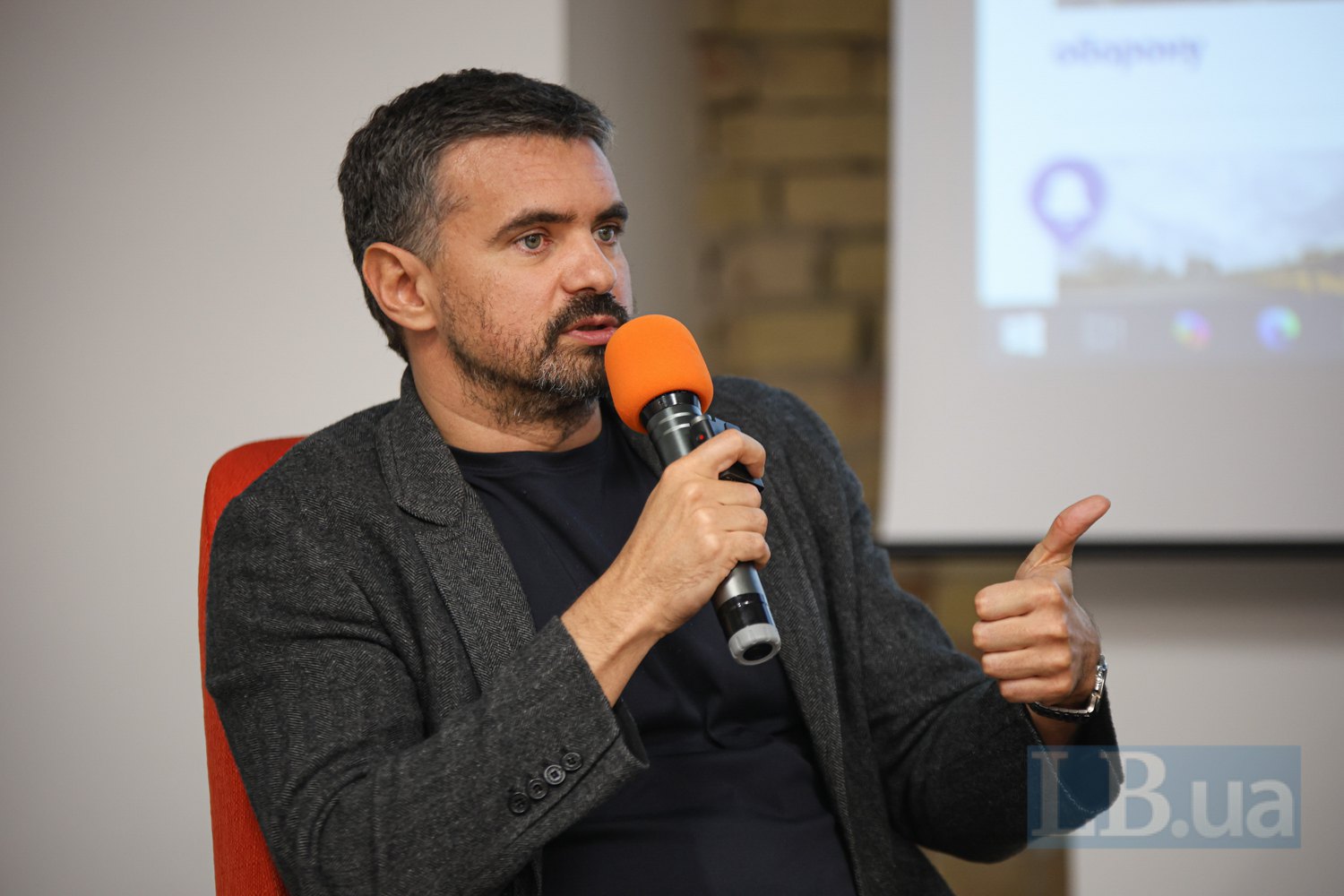
Almost all of the participants also agreed on the need to introduce a tax on exit capital.
‘If we want the economy to develop, we need a tax on exit capital. Diia.City shows that it works. And Diia.City is our economy in miniature,' says Artem Borodatyuk. He also reminded that there had been attempts to introduce the ECT during the previous administration.
MP Nina Yuzhanyna confirmed this. According to her, having studied the experience of Bulgaria (also cited by Artem Borodatyuk), the initiative group in 2015 proposed a draft law that provided for 10% personal income tax on wages, 20% unified social tax, a 10% single tax and no income tax, and a tax on withdrawn capital if you pay dividends or use the money in another way. But multinationals have slowed this down.
‘This liberal tax model, in particular the exit capital tax, has been accepted by all but two associations - the ACC (American Chamber of Commerce) and the EBA. The reason is very simple. The members of these organisations pay taxes at a rate much lower than the one in Ukraine. They pay 3-4% of the 18% corporate tax rate. How do they do it? Very legally, very nicely, with the help of lawyers and international organisations. And when they were told that there would be no benefits, that everyone would pay the same, that if you withdraw money from the business, you would pay 15%, while all other taxes would be much lower, they turned everyone on their ear.
At their suggestion, the IMF included in its memorandums a requirement that no tax be imposed on capital withdrawn. So, everyone is good, but ACC and EBA are even better,’ says Taras Kozak, President of the Univer Investment Group, who was a member of this initiative group, explaining why tax policy liberalisation failed ten years ago.
‘They demanded compensators to pick up the taxes that fell out, appealing to the fact that there is no such thing anywhere in Europe, and we are about to go there,’ Kozak recalled. But now European countries, including Estonia, are introducing ECT or something similar, and Diia.City shows that it works, but the argument is still the same - the IMF and international partners, the businessman stressed.
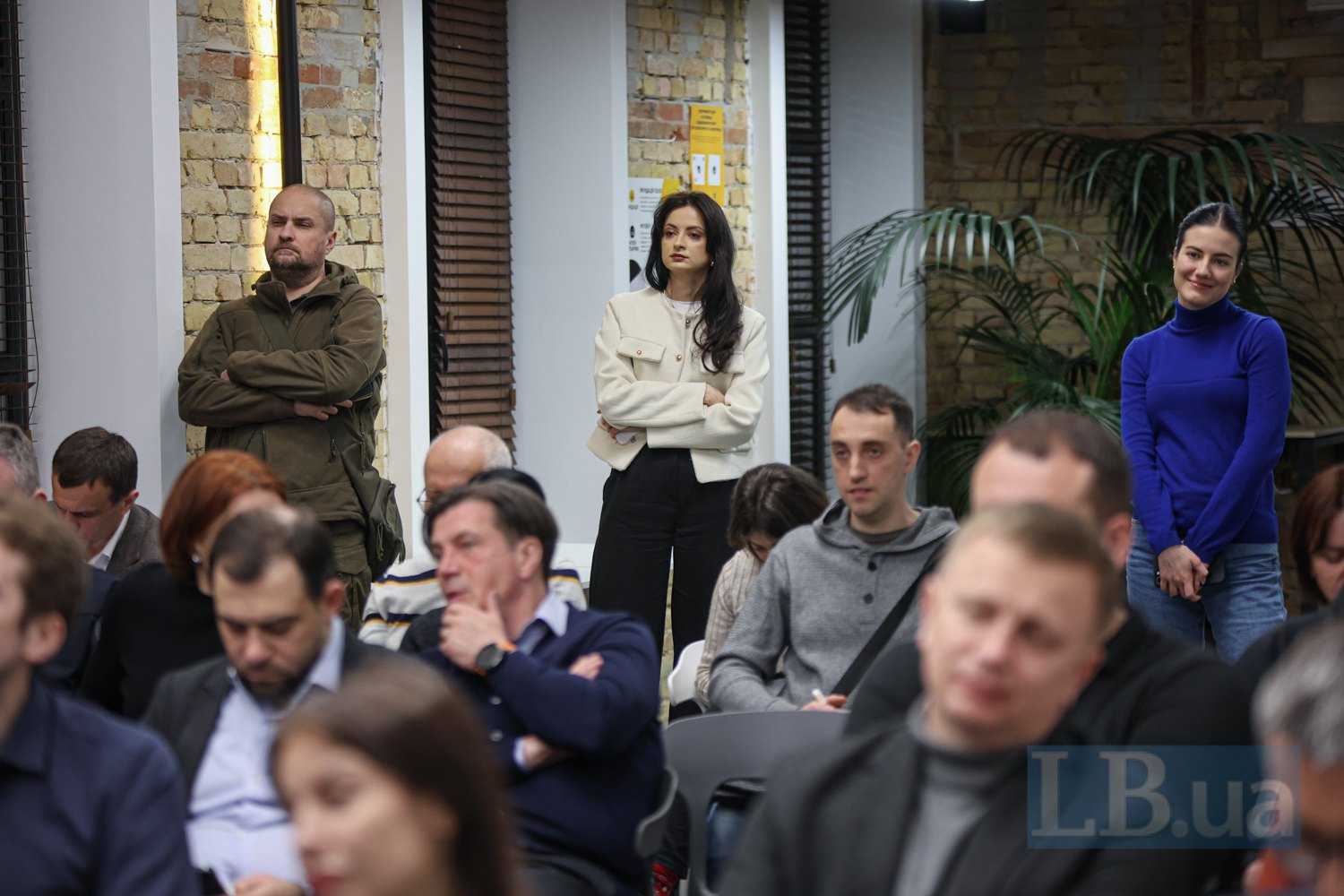
Servant of the People MP Mykhaylo Radutskyy proposed to introduce universal declaration for all Ukrainian citizens as a means of combating the shadow economy, saying that then there would be no place to take money for bribes. Americans declare their assets, so why can't Ukrainians, the MP argued.
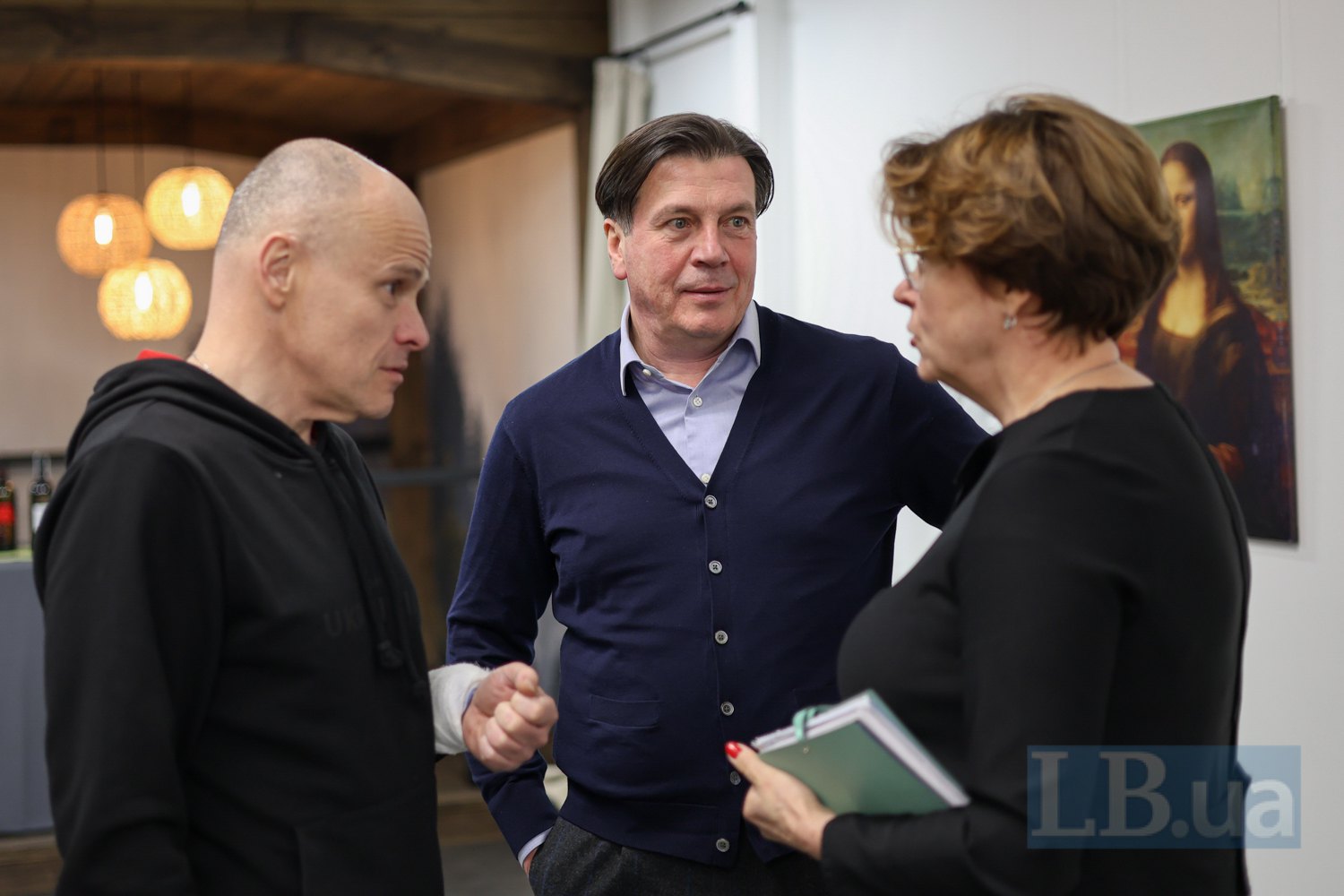
His faction colleague Halyna Yanchenko called it nonsense. ‘Instead of simplifying the declaration for declarants so that it does not cost $5-10,000 for lawyers, there are people who want to introduce declaration for everyone,’ the MP was outraged.
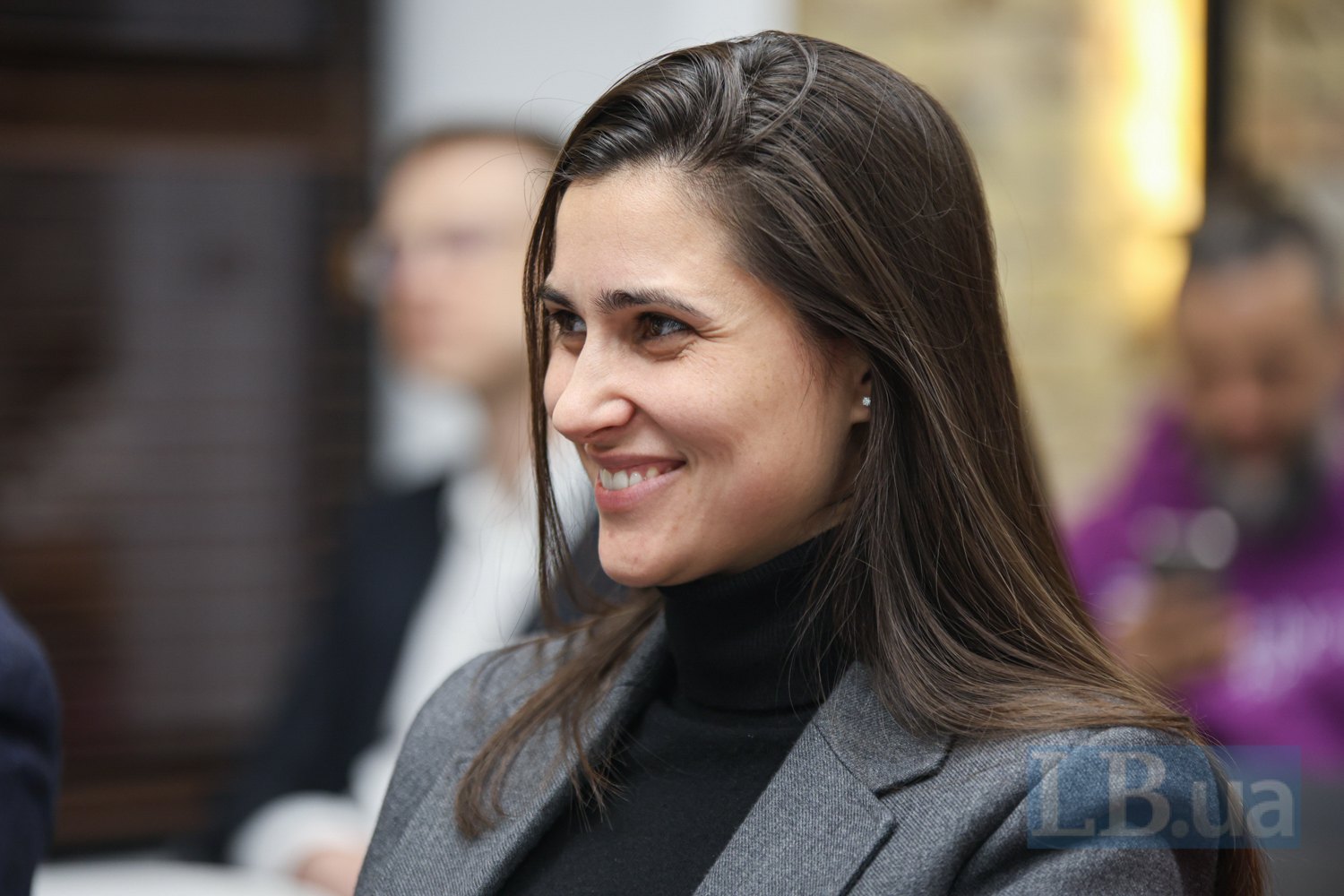
In general, the current tax policy is such that more money is spent on the administration of small and medium-sized businesses than these businesses bring in, and its efficiency is low, Oleksandr Yakovenko said.
‘Gradually, we are turning into a poor state in which big business survives because it is monopolised. All big business has made excessive profits and continues to do so. And family businesses, like a wife and husband opening a restaurant. Medium-sized businesses are dying out. Because it cannot survive with the tax burden, it cannot fight corruption, it lacks the resources to do so. In 2022-2023, we almost pushed the government to legislate changes to the tax burden and regulation. But we got the exact opposite. They allowed searches and increased taxes,’ the businessman said.
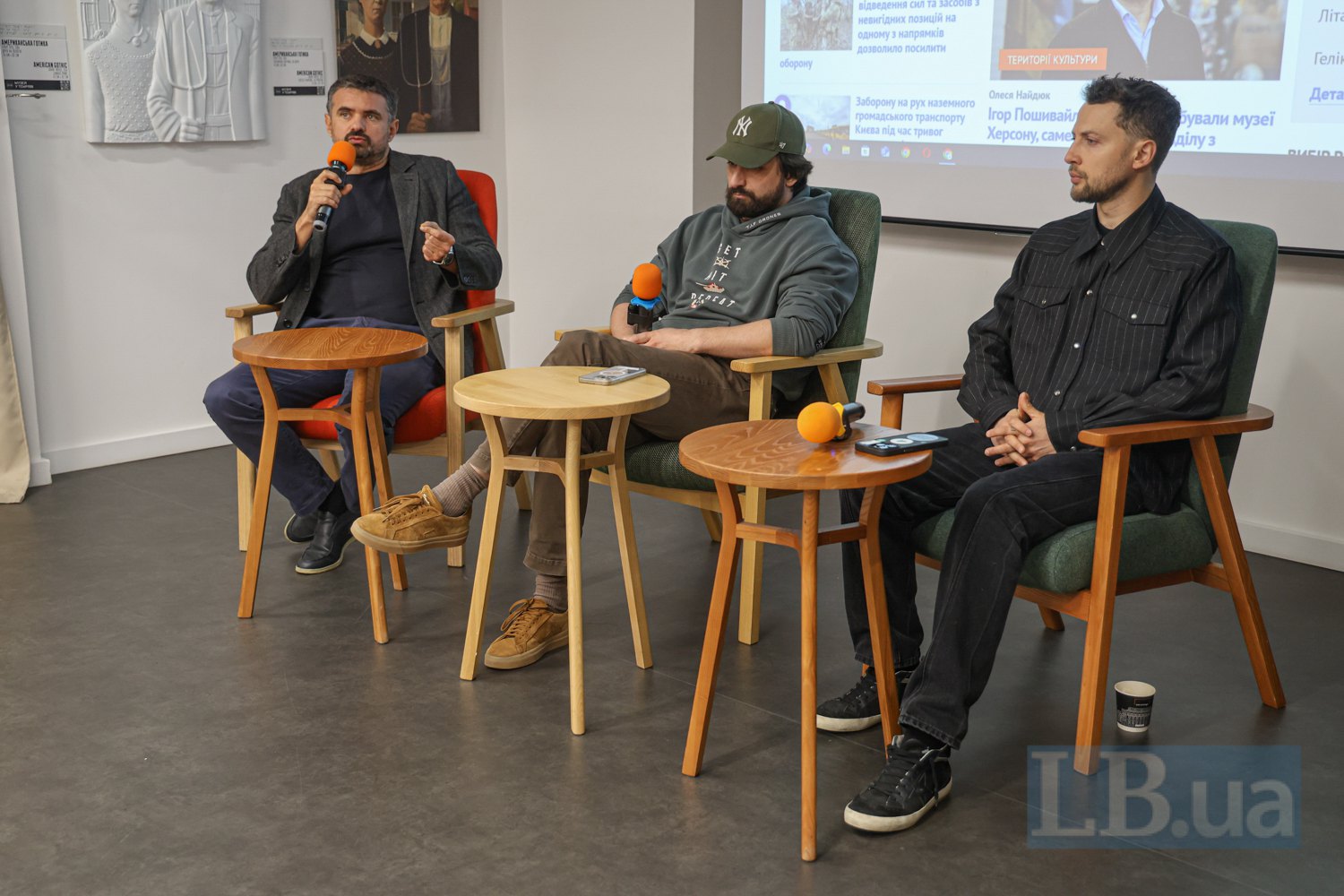
What the Ministry of Economy says about all this
When discussing taxes, one should assume that back in 1993, salaries in Ukraine were paid from net profits (an inherited system of the USSR's planned economy) - first, income tax was paid, and then salaries were paid from that, says Deputy Minister of Economy Taras Kachka. With this in mind, the current discussion is more or less normal, he adds.
However, it should be borne in mind that the state has a legitimate interest in receiving the taxes it expects, the deputy minister said. Whether they are used effectively is another discussion. But when discussing the size of the rates, we should proceed from the expenditure side of the budget, because the more benefits one industry receives, the greater the tax burden on another, he adds.
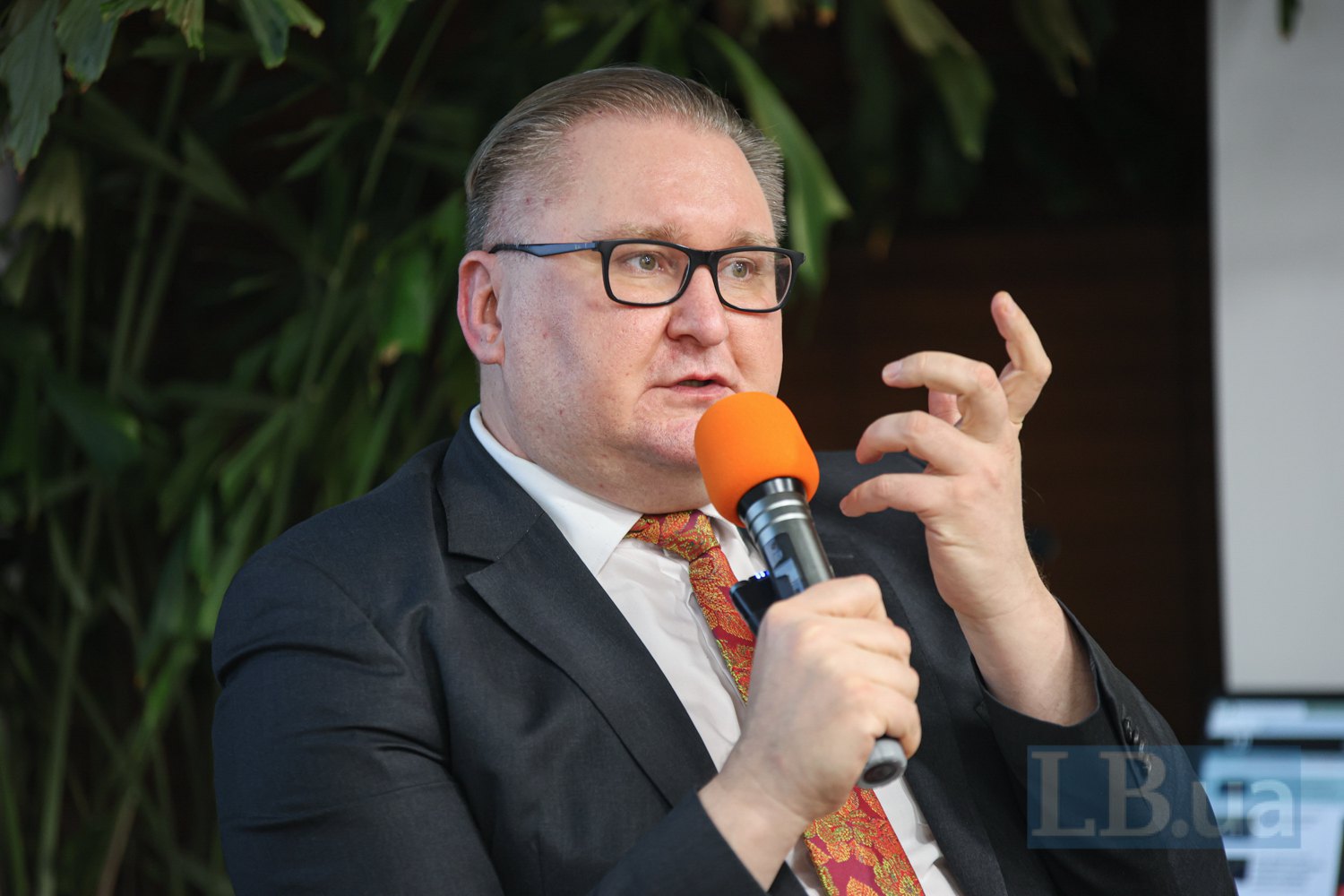
‘I agree that there should be some kind of big bet - like political gambling. I believe in something, I will do it. Some people believe in positive things, some in negative things. Some people believe in city taxes, President Trump believes in tariffs. I believe that Ukrainian businesses will start paying more money if they are given more freedom. But sometimes this requires such courage that it requires even more diplomatic protection with all our partners who support us financially,’ the official said.
Taras Kachka assures that no idea that is voiced is rejected. And any criticism the ministry hears is not taken as an excuse, but as a way to understand how to act.
However, the Deputy Minister of Economy does not believe that rapid and radical changes are possible.
‘Everything does not happen overnight. Even in political philosophy, there is a discussion that it is very rare in the history of Western countries to have a moment of such an opportunity to radically change the tax system. It often just goes through improvements, improvements, improvements.
Our tax system is not extremely bad, just 100% bad. But there are many rudimentary things left over from the Soviet era. They need to be cleaned up, cleaned up, cleaned up every year. The British change their taxes every year along with the budget. Because if they need to raise rents in order to spend on healthcare, they do it. Or if there is a consensus to cut taxes and reduce spending,’ said the representative of the Ministry of Economy.
At the same time, he called for remembering that Ukraine is large and very different. In talking about the digital economy and Miltech, we should not forget about the communities that are holding on, perhaps because they have a vocational school. So we have to balance.
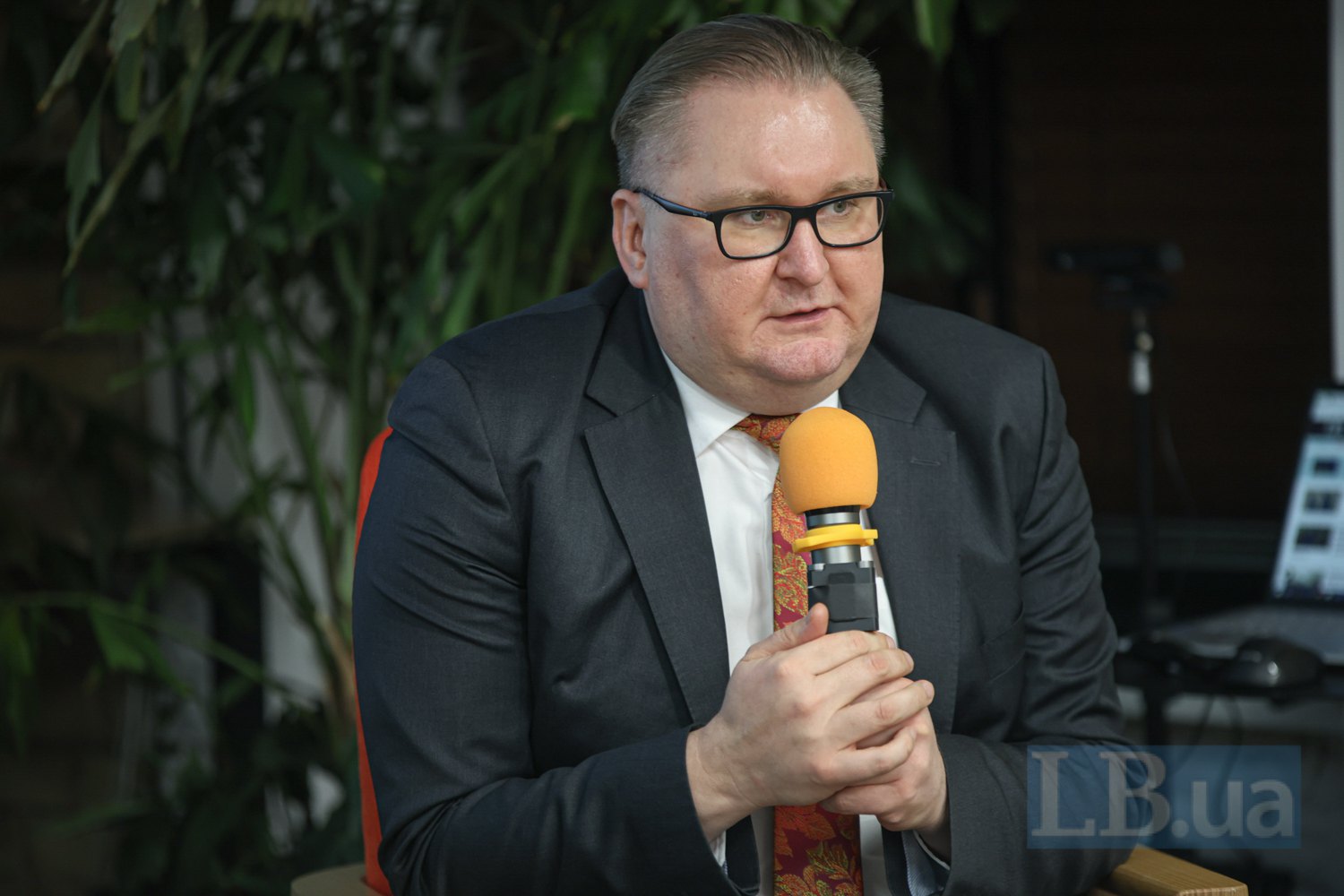
According to Taras Kachka, the fact that we have survived even in the face of war, that business has survived on its own and that the state has helped it, means that we are moving in the right direction.
‘We did away with total administrative regulation of the economy, and instead resorted to coordination and mutual dialogue, even in times of war. And this is the experience that needs to be further extrapolated,’ the Deputy Minister stressed.
The fact that business can openly express its dissatisfaction is also a positive signal, he believes, which means that we live in a democratic society.
At the same time, he notes that today's tax policy has set a trend towards transparency, and it needs to be expanded and scaled up.
‘There are different points of view on what transparency means. Each area has its own - digitalisation, simple rules, or something else. And even if the result is not achieved so that everyone, without exception, is satisfied with it, the trend itself is set,’ the official says.
The main problem is not taxes
According to Yuliya Klymenko, a member of the Holos party, any economy does not start with taxes, but with demographics. And the situation in Ukraine is catastrophic.
‘At best, 27 million people live in our country, and 10 million of them are pensioners. How are we going to change the economic situation and taxes and at the same time support the army by paying pensions to 10 million people, 30 per cent of the population? In fact, one working person supports two pensioners. How are we going to build the economy and cut taxes with such demographics, no migration, no return of people? The numbers don't add up. And they do not start with taxes. They start with the catastrophic demographic situation in Ukraine, which really needs to be corrected,’ the MP summed up.
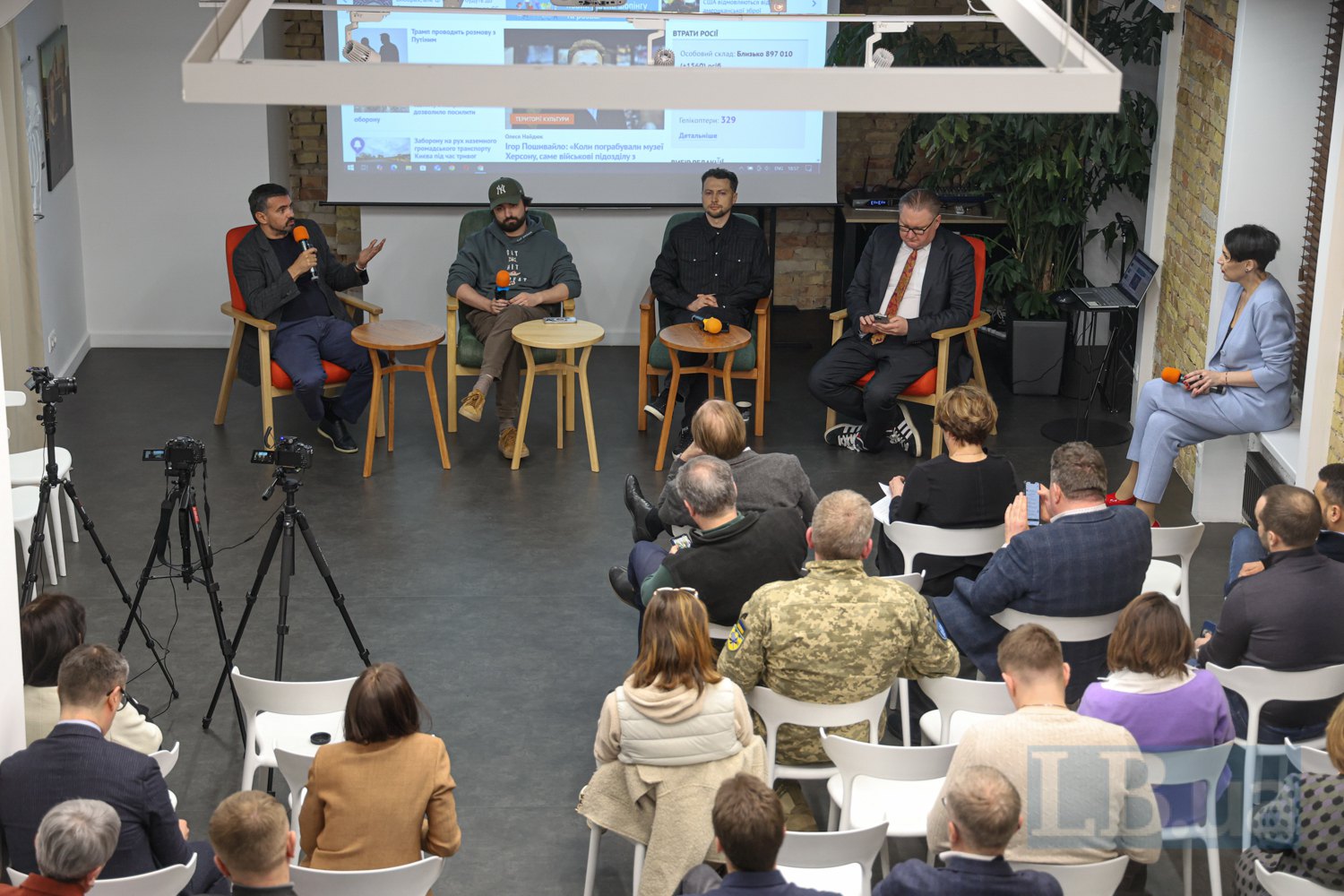
Video version of the discussion:








